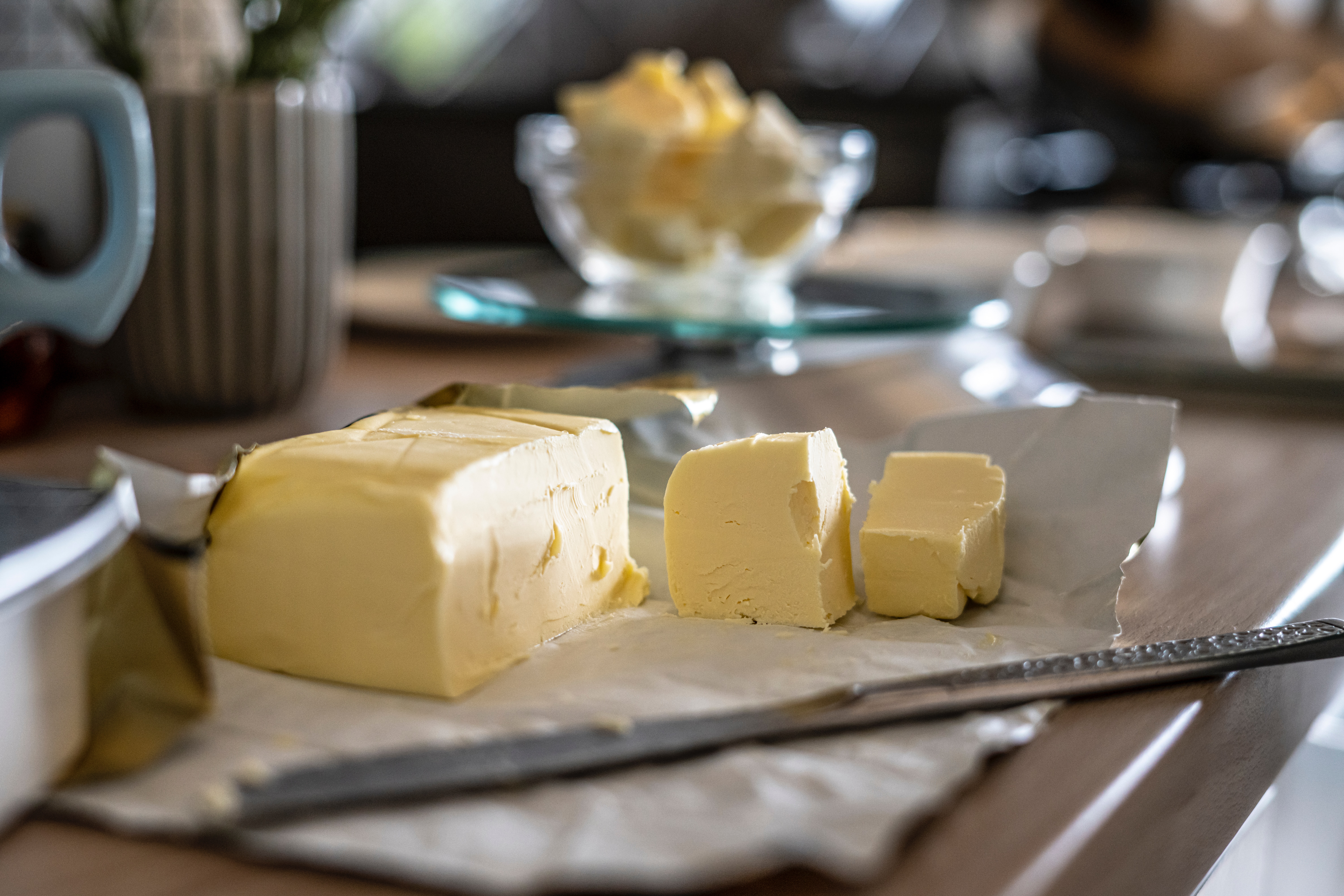In the South, butter is king. Made popular by famous celebrity cook Paula Deen, Southern cooking doesn’t skimp on using sticks of butter in almost every recipe. While the delicious flavor of butter cannot be denied, its nutrition and effects on our bodies is not always easily understood. Let’s explore the downfalls and benefits of butter consumption.
All About Butter
Butter is made from dairy milk where the fat from the milk is separated and then the milk fat is further drained of liquid (aka churning) to make a creamy spread. It’s typically used for sautéing, baking and complementing foods like bread, vegetables and pasta.
One tablespoon of butter is approximately 100 calories and 11 grams of fat (which includes 7 grams of saturated fat). But once you consume butter, what does it do to your system?
“Butter is comprised of mostly fat so your body will process it as such,” said Jennifer Bleiweis, RDN, LD/N, registered dietician and owner of Real Foods RD, a local nutrition therapy and health coaching company. “The fats will be digested, absorbed into the blood stream and processed in the liver where the product will then be used for energy, incorporated into tissues, or stored in fatty tissues for later use.”
Downsides and Benefits to Butter
Over the years, butter has gotten a bad rap nutritionally. Actually, there are some benefits of butter consumption. Some research points to a cardio protective effect of dairy fats, Bleiweis said. Butter has ample vitamin A, which benefits eye health, and vitamin E, a natural antioxidant.
Butter is high in saturated fat. This was once thought to be bad for your heart, but recently was found not to be linked to a high risk of heart disease. However, due to its high caloric and fat count, it should still be eaten in moderation. The most recent recommendations from Dietary Guidelines for Americans advise limiting saturated fat to less than 10% of calories per day.
“It is controversial at this time as to whether the saturated fats in dairy contribute to heart disease,” Bleiweis said. “We do know that excessive weight gain can impact cardiovascular health, and butter is high in calories, so again, portion size is key. The best bet is to use butter sparingly by making the portion small (1 tsp) and enjoying the flavor.”
Can someone be addicted to butter or be a “butterholic”? There is scientific evidence that shows that eating fatty food can illicit dopamine in the brain, a chemical that plays a role in how we feel pleasure. So it’s even more important to eat healthy fats and eat butter in moderation.
Healthy Alternatives
Healthy substitutes for butter in cooking include olive oil or canola oil in savory cooking. “[These oils] hold up well and will give you more monounsaturated fats,” Bleiweis said. Ingredients like mashed avocado or banana, nut butter, applesauce, Greek yogurt or pumpkin puree are great substitutes for baking.
Buttery spreads sold at supermarkets typically contain less trans and saturated fats than regular butter. Spreads recommended by Consumer Reports include Land O’Lakes spreadable butter with canola oil, buttery spreads like I Can’t Believe It’s Not Butter Light made with palm and kernel oil and Brummel and Brown 35% Vegetable Oil spread.
“There are some ‘buttery’ spreads available that either reduce the fat content or have more monounsaturated or polyunsaturated fats. Be careful and check that the product does not contain trans fats. These types of fats have been shown to increase risk of heart disease,” Bleiweis said.
Related articles
Satisfy Your Dessert Cravings With Fabulous Figs
6 Of Our Favorite Slow Cooker Soup Recipes
Try This Creamy Vanilla And Pumpkin Protein Smoothie
Get The Scoop On Skin Allergies

